As a Turkish, I have not given much thought to if Turkey is considered in the Middle East, but today a business form asked me if my country is in the Middle East or not.
I was puzzled, and the question made me uneasy about accepting Turkey as a Middle Eastern country.
Here is a widely accepted SHORT ANSWER which I do not like to agree with.
Turkey is a transcontinental country that is located both in Europe and Asia. 3% of Turkish lands and 14% of the Turkish population are on the European side of Turkey.
Turkey’s Asia part (Anatolia) is in the Middle East, and Turkey’s Europe part is in the Balkan region of Europe.
Turkey is in Europe, Asia, the Middle East, and the Balkans at the same time.
In this post, I will tell you some facts about Turkey as well as similarities and differences between Turkey and the Middle East.
And also Why I believe Turkey is NOT a Middle Eastern country.

1. Is Turkey in The Middle East? Why is Turkey, not a Middle Eastern Country? My opinion
The Middle East may seem like a geographical designation, but the Middle East is not a geographical designation.
For this reason, the Middle East has no clear boundaries making the term unstable.
Turkey is sometimes considered to be in the Middle East, but most Turkish people and I believe Turkey is not a Middle Eastern country.
If you look into Turkish society, Turkey is not in the Middle East because Turkish economic structure and sociological structures are different from Middle Eastern countries.
Turkey is a secular state with a highly educated middle class.
Unlike most Middle Eastern countries, Turkey does not have adequate natural resources to maintain its economy and relies mostly on industrial and service outputs.
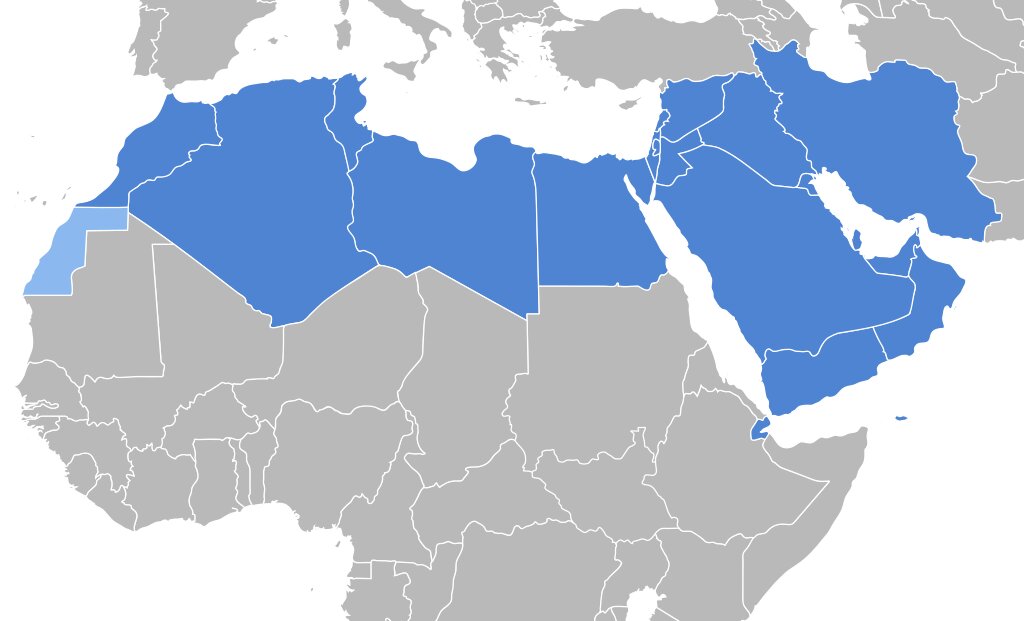
Turkey is not considered to be in the Middle East by most international organizations because Turkey and its industrialized society’s problems and needs are similar to European societies.
The UK, World Bank, IMF, and most United Nations organizations (FAO, UNAIDS, UNICEF, UNHCR) define Turkey as a European country.
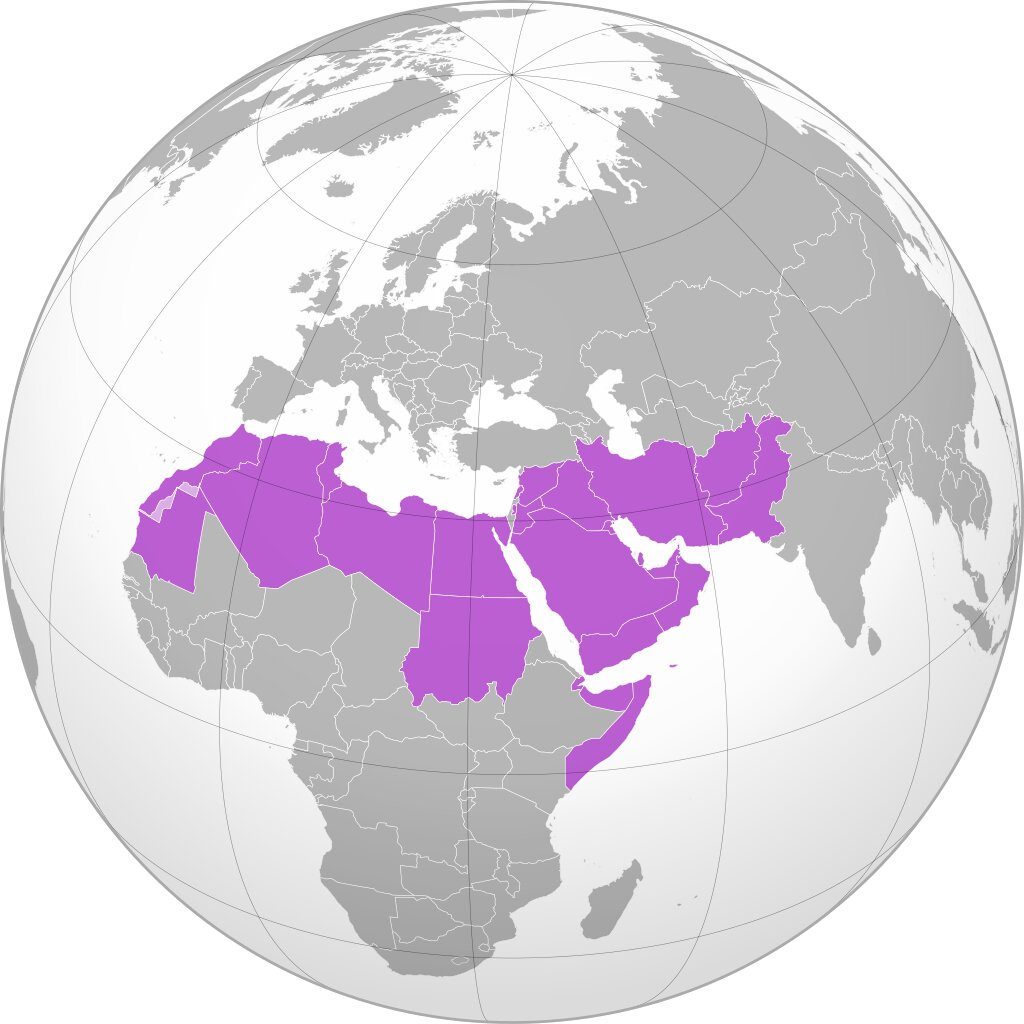
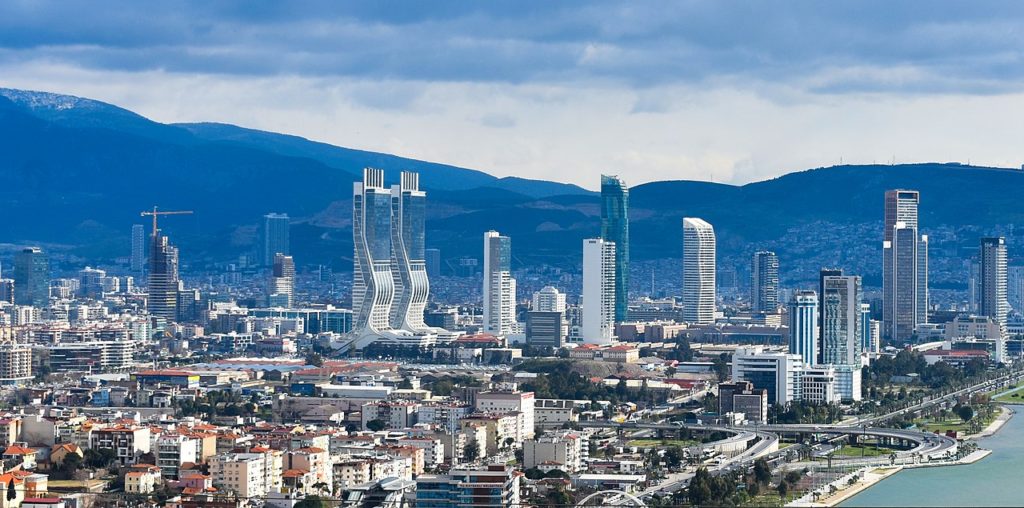
2. Turkish Economy vs the Middle Eastern Economies
Since the foundation of the Turkish Republic, Turkey has always embraced liberal economic principles, and Turkey is strongly aligned with European countries.
Turkey is also in Customs Union with the EU, and the Turkish industry can compete with European brands in most product categories.
Turkey is one of the world’s leading producers of agricultural products, textiles, motor vehicles, transportation equipment, construction materials, consumer electronics, fashion, and home appliances.
Turkey is an industrialized country with few natural resources.
Unlike big economies in the Middle East, Turkey is not blessed with natural resources like oil. The mining industry is not a significant sector of the Turkish economy.
The Turkish economy is more diverse and depends on technology rather than natural resource production, like Middle Eastern countries.
For these reasons, Turkey’s economic and sociopolitical structure is also different from the oil-rich or underdeveloped economies of the Middle East.
You also read my article Why is Turkey considered European? Explained With Unknown Facts to learn more.
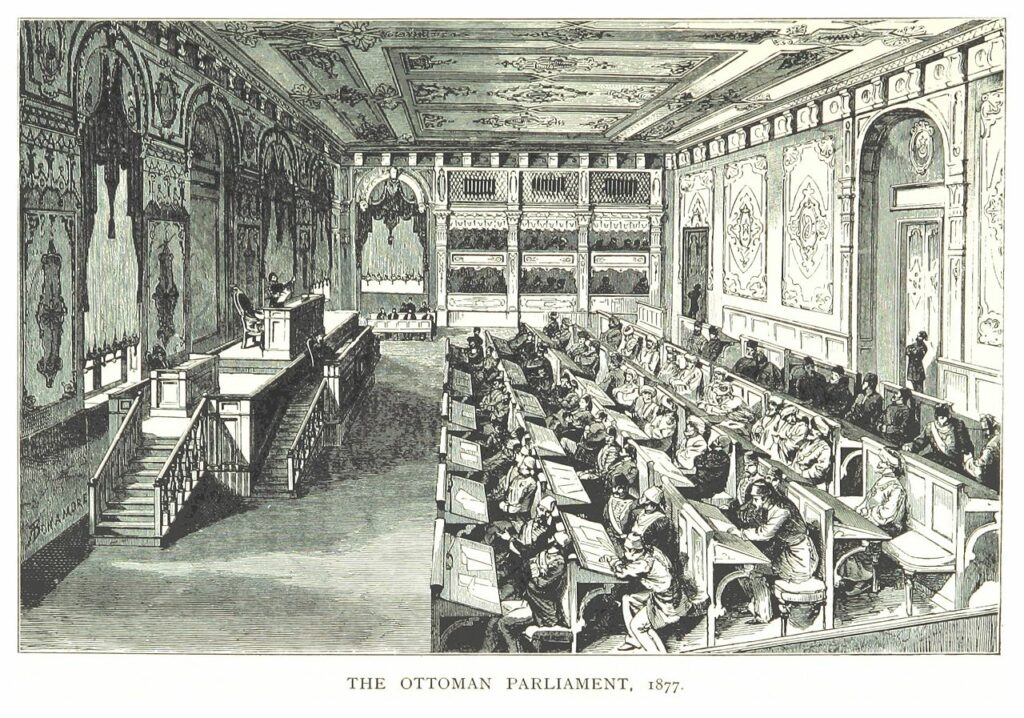
3. Turkish Culture vs Middle Eastern Culture
Turkish culture is a fusion of Anatolian (Asia Minor), Balkan, and Central Asian cultures.
Turkey is often linked to the Middle East because the dominant religion is Islam in Turkey.
Yet, Turkey is an industrialized economy with democracy, and its social structures are different from the Middle East.
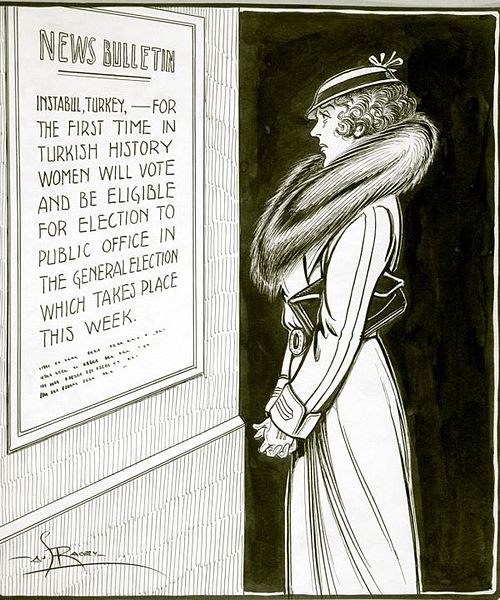
Turkey was one of the first European countries to accept secularism, and Turkey was also one of the first countries to recognize equal voting for women in 1930. (A decade before Belgium, France, and Italy.)
For more, please read my article on Turkish Women – How and Why They Are Different?
Middle Eastern influence in Turkey is more closely tied to religion. For example, Turkish has %5 loanwords from Arabic and French at the same time.
Arabic loanwords are mostly religious terms.
Yet, French words are in every part of our daily culture because Turkey was in an alliance with the French from 1536 until the Napoleonic wars.
The Turkish Ottoman Empire was seen as a major European power until World War 1.
If you judge Turkey with European criteria, we can have the lowest ranking in some areas compared to European countries.
Yet, if you consider Turkey with the rest of the world, we have one of the best rankings, and Turkey’s standard of living is very similar to Europe.

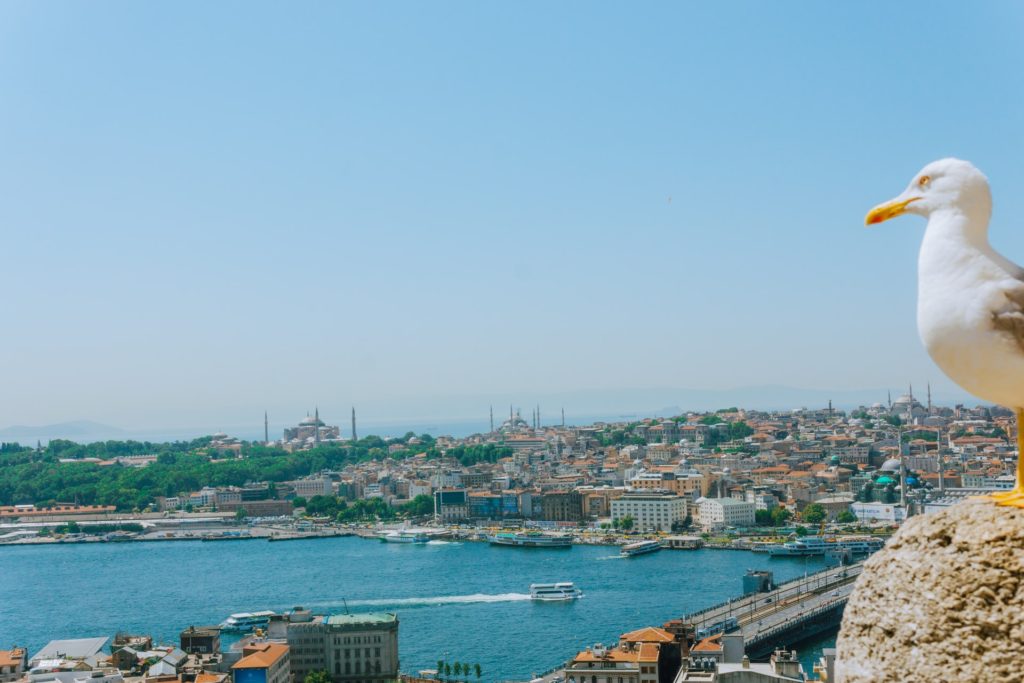
4. Turkish Climate vs the Middle Eastern Climate
You are mistaken if you think Turkey has a typical Middle Eastern climate.
As you can see in the below climate map, the climate of Turkey is different from the Middle East.
Turkey generally does not resemble the Middle East when you look at the weather conditions.
While all Middle Eastern countries have desert and arid climates, Turkey has diverse climate systems ranging from the Mediterranean to Oceanic climate systems.
The landscape of Turkey is also totally different from the Middle East. The landscape and climate of Turkey are similar to Greece, Spain, Italy, and Southern France.
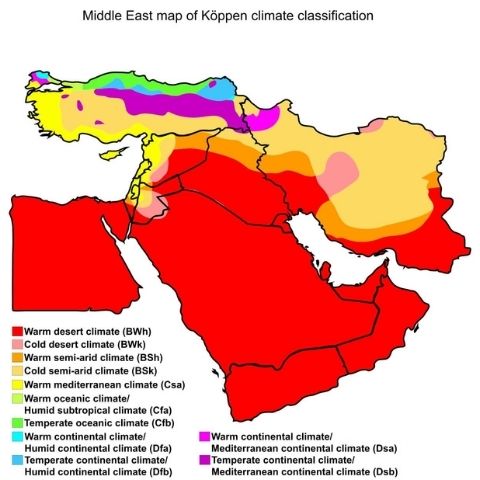
Just an interesting fact here, camels are not native animals of Turkey, as shown in several James Bond movies.
Today, only several hundred camels live in Turkey because, after the industrialization of Turkey, Camels are no longer needed as work animals.
The only reason that camels are present in Turkey is for Camel Wrestling Festivals and Camel Beauty Contests.
5. Turkey is a Secular Country
Turkey is the only democratic country with a liberal and secular government while being a majority Muslim country.
Turkey is seen as a Middle Eastern country because the dominant religion in Turkey is Islam. Yet, Turkish legal rules are not based on religious practices, and Turkey is a secular country.
Turkish Women enjoy the highest freedom standard among the countries with Muslim populations. Unlike Middle Eastern countries, Turkish women are free to dress how they like Modern or Hijab style.
Lately, it is easier to criticize Turkey for not being as secular as it used to be, but I can’t entirely agree.
In recent years, Turkey has been ruled by more religious politicians, but legal rules and the legal system are still based on Western principles and the European legal system.
Nobody in its logical mind wants Sharia law in Turkey. We have 20 years of Islamic politicians’ rule, and still, not a single law is based on Islamic Sharia.
You can not find an article in our civil, commercial, criminal law, or other regulations referring to Islamic principles.
Turkish Islamic politics are evolving to something similar to Christian Democrats in Europe and not something similar to a Middle Eastern political arena, but it is taking time.
Religious politics of today are a kind of the antithesis of earlier decades.
In the old times, secular Turkish politicians took it too far to ban religion in public life. In my early years of life, I was also a supporter of these bans. Yet, after my legal training in Turkey and the UK, I can see my mistakes now.
I believe banning headscarves or not allowing some religious acts may be okay in the 1920s world, but the communism-like religious freedom bans of the 1980s were violating human rights.
6. Original Middle East Term and MENA
The Middle East is a term used at the beginning of the 20th century, yet there is no consensus on which countries are Middle Eastern countries.
The Middle East was a term used to describe European powers’ colonies in Western Asia.
Yet, Turkey was never conquered or colonized by European powers. On the contrary, Turkey was a European power with vast territories in Africa, the Middle East, the Balkans, and Asia.
Besides its religious ties with the Middle East, Turkish culture is not Middle Eastern culture.
Turkey has stronger cultural and linguistic roots in the European Balkan nations and Central Asian Turkic nations.
While the CIA Factbook defines Turkey as a Middle Eastern country. Yet, CIA Factbook‘s brute definition also includes Georgia, Armenia, and Azerbaijan, which are European countries.
Recently, a broader definition has been used instead of the Middle East. The new term, Middle East and North Africa (MENA), defines the Middle East and North African countries together.
Turkey is rarely grouped with MENA countries.
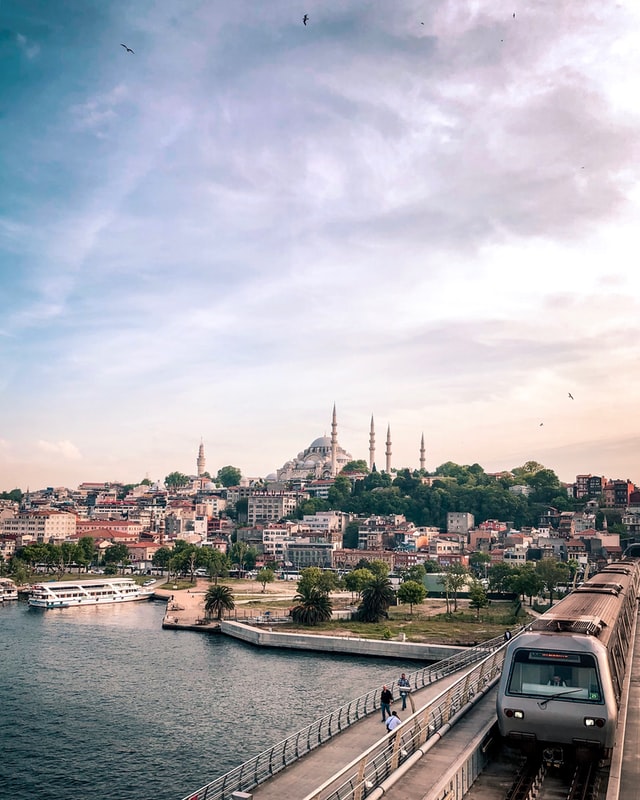
Additionally, according to Middle Eastern people, most Turkish people are light Muslims at best, and according to most Turkish people, Arabs got it all wrong, and they are practicing Islam in a backward way.
The Middle East does not have Turkish traditions, history, and Islamic practices. Turkish Sultans had the title of Khalifa, and they were the spiritual head of Islam.
Yet, even Turkish Sultans drank alcohol and enjoyed many things that are forbidden in Islam. Moreover, the Turks abolished the Khalifa institution after the Turkish Republic was founded.
Turkey is probably one of the few countries in the Middle East where you can watch the scenery of Mosques and enjoy your beer.
Check my article if you wish to know more about Turkish drinking culture.
Just another thing to note is non-believers of the Islamic faith are common in Turkey.
According to a recent survey, 8% of the Turkish population declared that they were not affiliated with any religion and identified themselves as Deists or Atheists. Source
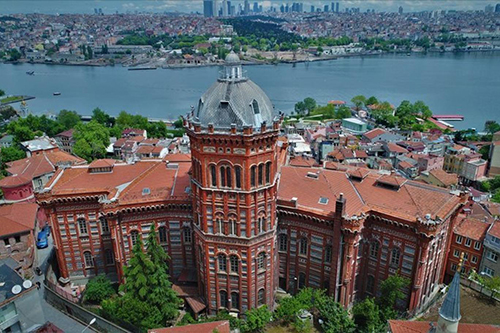
Turkey also has a historic Christian and Jewish native population.
The Istanbul Patriarch, the spiritual leader of Orthodox Christianity, still functions in Istanbul since the Roman Empire split into East Roman (Orthodox) & West Roman Empire (Catholic).
The equivalent of the Istanbul Patriarchate is the Vatican of the Western Roman Empire.
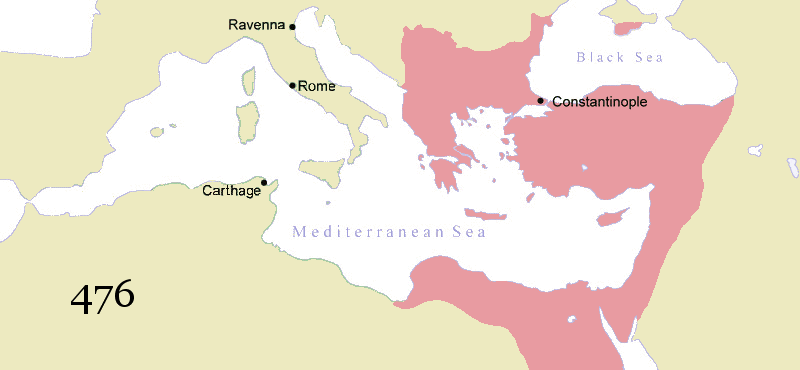
You can read my article to learn more about Why Constantinople’s name changed to Istanbul.
7. For centuries, the capital of the Middle East was Istanbul
The common trait of all Middle Eastern countries is that they were all ruled by East Roman, Byzantine, and Turkish Ottoman Empires for a long time.
Istanbul (formerly Constinaple) was the capital of the Middle East, not for centuries, about two thousand years.
This is one of the significant reasons why Turkey is associated with the Middle East because Turkey and the Middle East have been one country for a very long time. Iran is the only exception.
Yet like Romans or Greeks who ruled the Middle East, Turks are also different from Arabs.
The countries in the Middle East gained their independence in the 19th century after World War I.
Since the Roman Empire split into two parts, the East Roman Empire’s capital became Istanbul.
When Byzantium fell, the Turkish arrived. Turkish people not only conquered Istanbul. Ottomans ruled and expanded the lands that formerly belonged to the East Roman Empire.
Istanbul was still the capital of the Middle East.
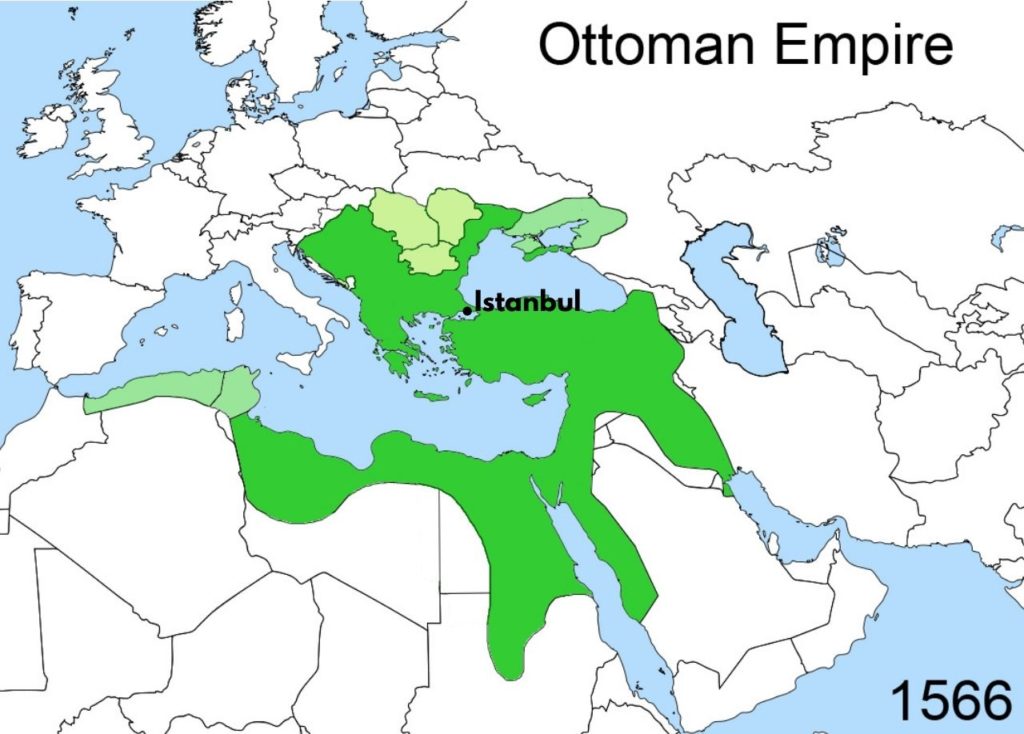
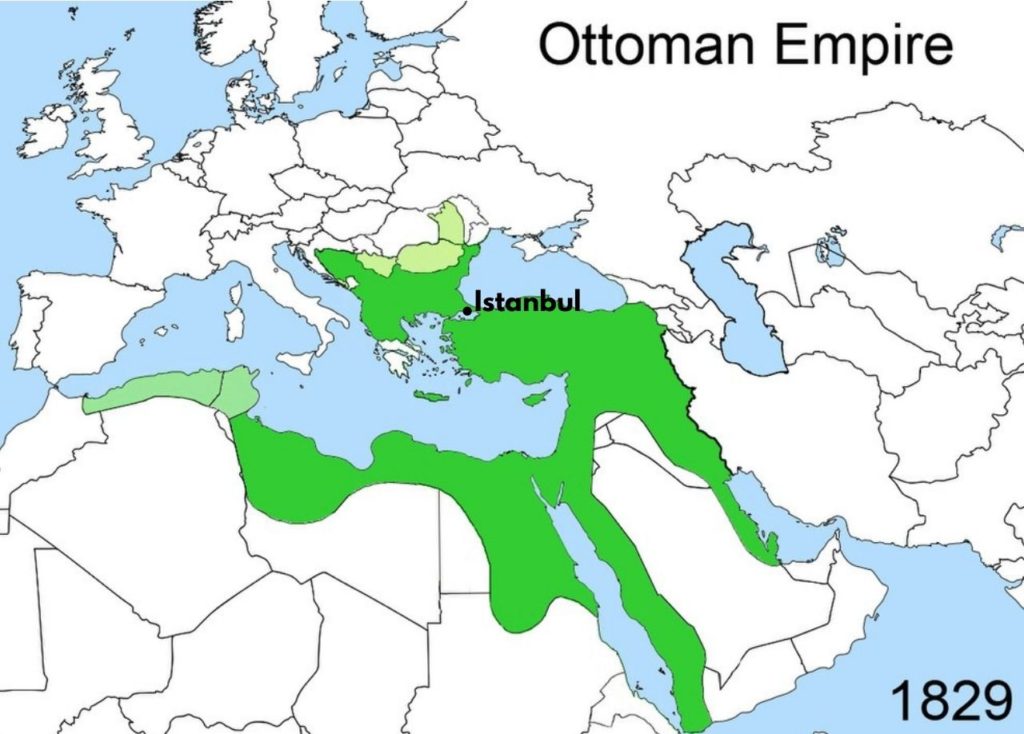
Suggested Reading: What Do Turkish People Look Like? With Pictures and History
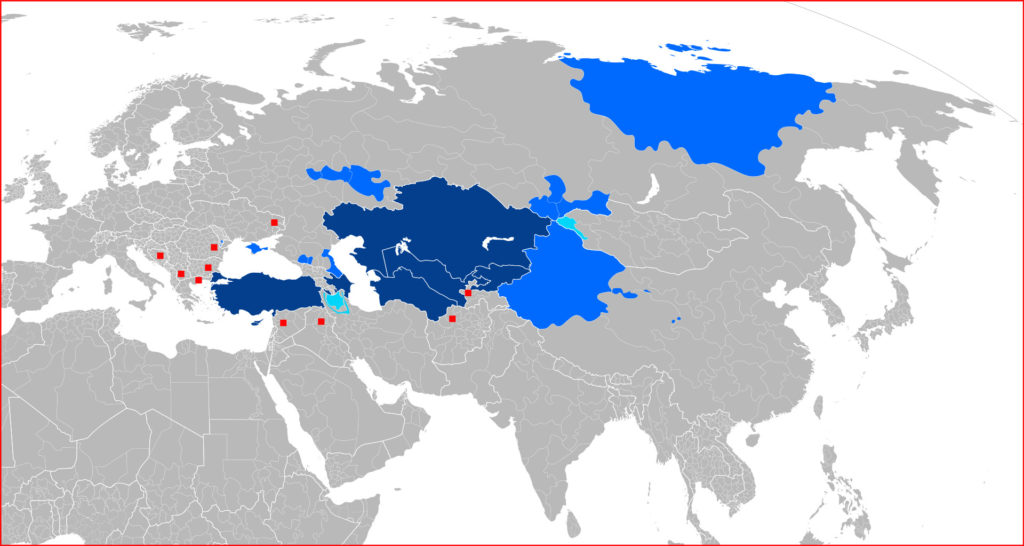
8. Turkish People are not Middle Eastern.
Turkish People are not Arabs or Persian. Turkish people are culturally and linguistically different from Middle Eastern nations.
Turkish People’s origins lie with nomadic Turkic tribes of Central Asia. Turks settled in Turkey around 1200 BC by mixing with the ancient people of Anatolia.
Additionally, Turkish people are genetically most similar to Greek and South Italian people with Central Asian DNA. source
The main difference between Turkish people and South Europeans is that Turkish people also have Central Asian ancestry.
The Turkish language is also a Central Asian language which is most similar to Azerbaijani, and Turkish is totally different from Middle Eastern languages.
Only 1.5-2 million Turkish citizens have Arab ancestry, which is about 1,5% of the Turkish population.
The Turkish language is closer to the Korean or Hungarian Language than the Arabic language. Click on my articles to read more about Turkish Language Origins or the Difference between the Turkish and Arabic Languages.
Turkey Travel Planning Guide
🚑 Should I buy travel insurance for Turkey?
100% YES! — With basic coverage averaging just $5-10 USD per day, enjoy peace of mind with a plan from SafetyWing, one of the biggest names in travel insurance.
💧Can you drink tap water in Turkey?
Rarely — You’ll want to buy a Water-To-Go Bottle, which filters your drinking water so you don’t get sick from drinking water in Turkey, and helps keep you hydrated while traveling Turkey. (Read more)
🚙💨 Is it safe to rent a car in Turkey?
Yes — Renting a car in Turkey is one of the best ways to explore the seven regions of Turkey! I always rent with Discover Cars, which checks both international companies and local Turkish companies, so you get the best rates. (Read more)
🏩 What’s the best way to book my Turkey accommodation?
For Turkish hotels and hostels, Booking is the best site. If you’re considering an Airbnb, don’t forget also to check VRBO, which is often cheaper than Airbnb!
✈️ What’s the best site to buy flights to Turkey? For finding cheap Turkey flights, I recommend Skyscanner and Google Flights. (Read more about the best Turkish Airline Companies.)
🎫 Do I need a visa for Turkey?
Likely Not — U.S., Canadian, and most European Passport holders don’t need a visa for Turkey but check here to see if you do need a Turkey travel visa.

Turkey is not in Middle East although has borders with ME countries. Correct geographic location of Turkey is Asia Minor or equivalently Near East. Please don’t misinform people.
Have enjoyed your article on Turkey. Visiting Turkey in Nov n just wanted to understand the country as I hear is a very beautiful country. Thanks to your article I have more understanding. Always thought Turkey is a Middle Eastern State with majority of population are Muslim.
No offense but, alongside giving false information (arabic words in Turkish language represents more than 10% of words, not 5%), you didnt give a single evidence of how Turkish culture would be any closer to Balkans or any part of Europe (or even to central asia) than to middle east. Secularism is not an evidence, lebanese people are often more secular than Turks, but are always seen as middle eastern
Also, in the only online poll i have seen, 80% of people in the world think of Turkey as mostly or fully middle eastern
As a Turkish, when travelling I feel like a stranger in the Middle East. I feel very close to home in the Balkans. In Central Asia or Azerbejian, I feel at my brother’s house and can speak my native language with locals.